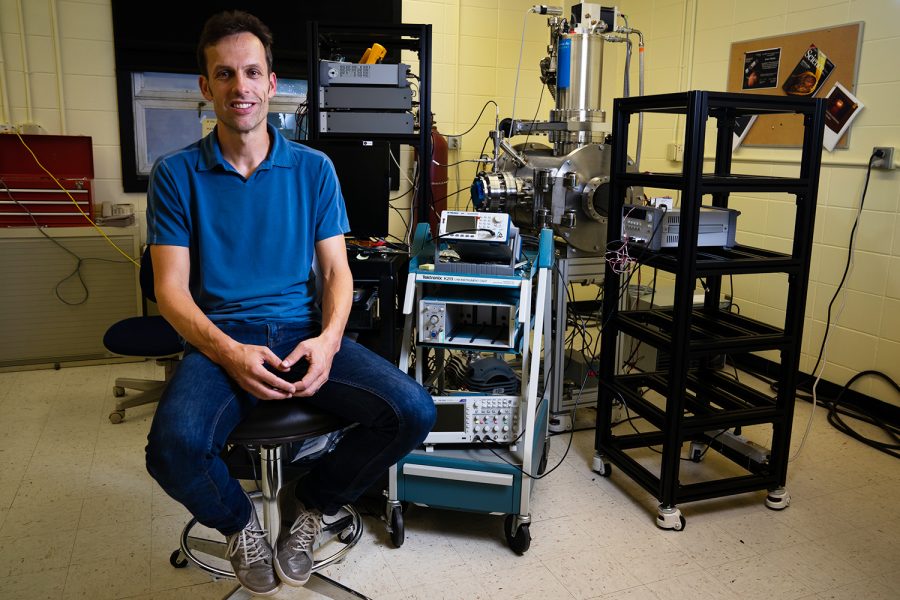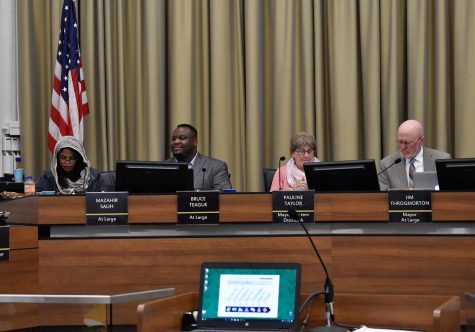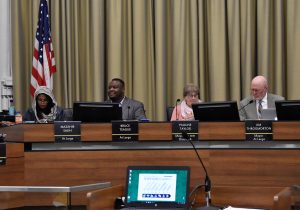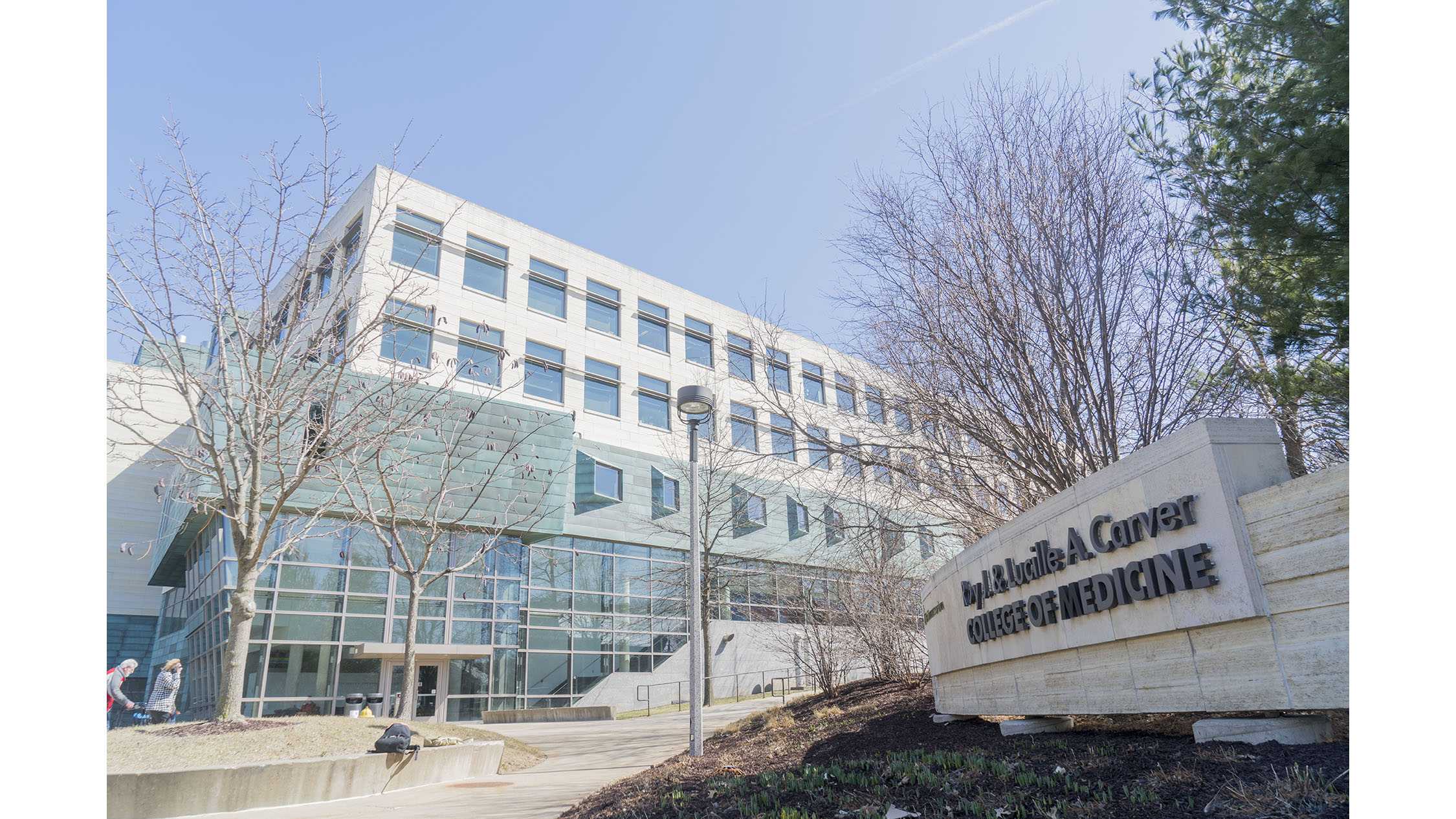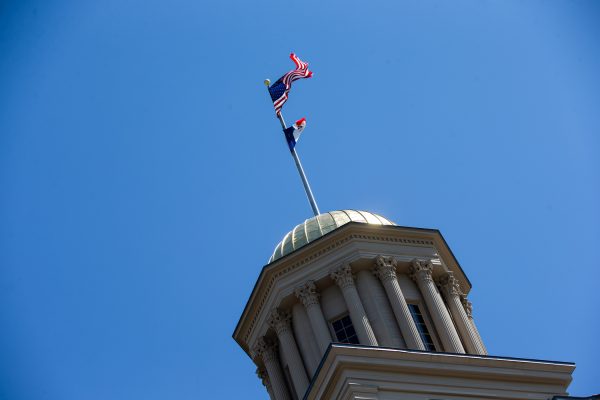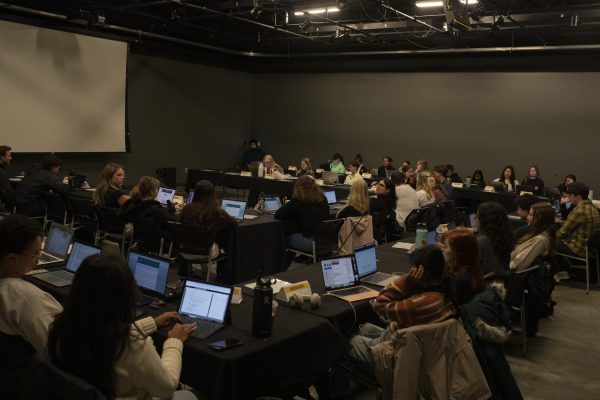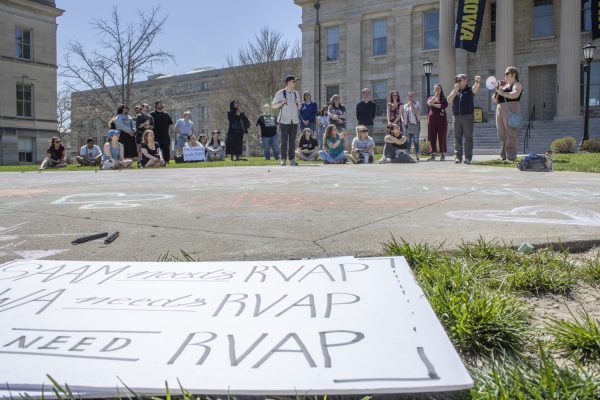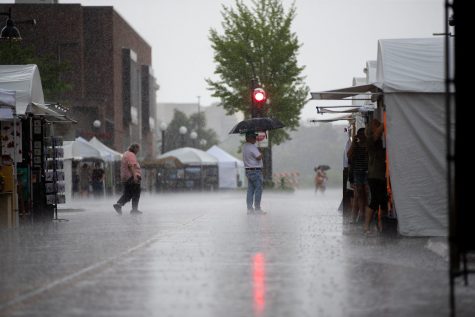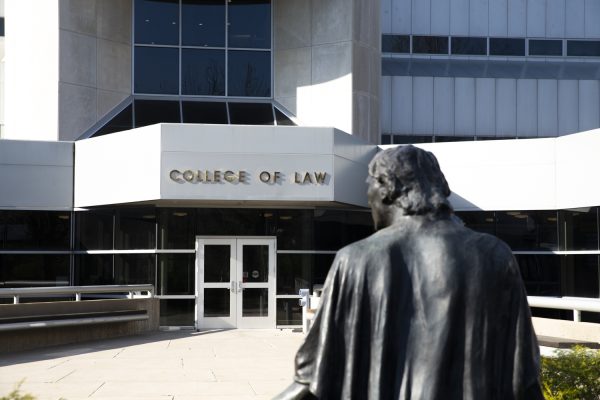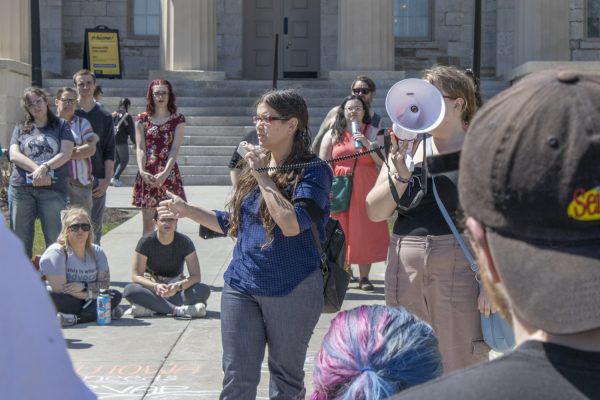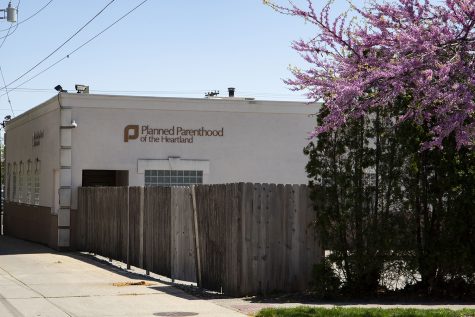Government shutdown hurts UI researchers in funding, resources
As the partial government shutdown continues, several UI research teams are feeling the burn while they await withheld funding, resources, and support from affected agencies they rely on.
Jasper Halekas poses for a portrait in his lab in Van Allen Hall on Friday, August 24, 2018.
January 14, 2019
When University of Iowa physics/astronomy Associate Professor Jasper Halekas heard about a potential shutdown of the government in December 2018, he and countless other university researchers nationwide immediately foresaw substantial financial issues arising for their projects.
For Halekas, his main concern quickly became his inability to communicate with NASA researchers on several projects they collaborate on.
“All of the employees at NASA centers who are directly employed by NASA are off work now,” he said. “They can’t come into their office, they can’t answer their phones, they can’t answer their email. So, a lot of my research that relies on collaboration with people at NASA center has taken a hit.”
Halekas and other researchers rely on affected agencies such as NASA for resources and support. Some of their bigger projects, such as UI Senior Engineering Associate Donald Kirchner’s collaboration with NASA’s Jet Propulsion Laboratory to build an instrument that will go to Jupiter, require frequent increments of funding from these agencies to keep progress timely.
Halekas said a missed increment means serious financial problems and delays.
“Our next funding increment is expected to be due in February. [The Jet Propulsion Lab] may or may not have the funds available to cover what we are expecting to get,” Kirchner said in an email to The Daily Iowan. “On a recent data analysis contract, they were able to send half of the funds expected.”
He said any funding problems would cause his team to delay a critical purchase and affect their ability to deliver the instrument on time.
In fiscal 2018, the UI received more than $260 million in federal funding for research, a 29 percent increase over the previous year, according to the UI Office of the Vice President for Research. Researchers in the Physics/Astronomy Department alone received $8.8 million from NASA in fiscal 2018.
A delay in funding lasting long enough, Kirchner said, could mean a complete halt on projects.
RELATED: Spacing out is her specialty
UI physics/astronomy Professor Philip Kaaret also faces complications because of his inability to communicate with NASA. One of his projects, a satellite that examines X-ray emissions surrounding the Milky Way, is running again thanks to NASA employees who are working without pay. His team for another satellite project of similar nature is unable to communicate with one another or meet to share information.
“When the shutdown first started, we actually couldn’t talk to [the satellite] for several days, because the people who ran it were told not to come to work,” Kaaret said.
However, not all UI researchers are affected. Interim Research Vice President John Keller said the UI’s primary source for grant approval and funding, the National Institutes of Health, distributed its resources before the shutdown began. However, projects reliant on the National Science Foundation, NASA, and the EPA for resources are being slowly drained of finances.
“Longer term, this could have quite an impact on the research enterprise where our faculty and our students use those agencies to support their research and scholarship,” Keller said.
A prolonged shutdown could lead to a complete work stoppage for some agencies, though this is unlikely, he said.
“An agency might lose its funding and all the projects in that agency would shut down immediately,” he said. “We really, really hope that doesn’t happen. But that’s something out there on the horizon that we have to be concerned with.”



